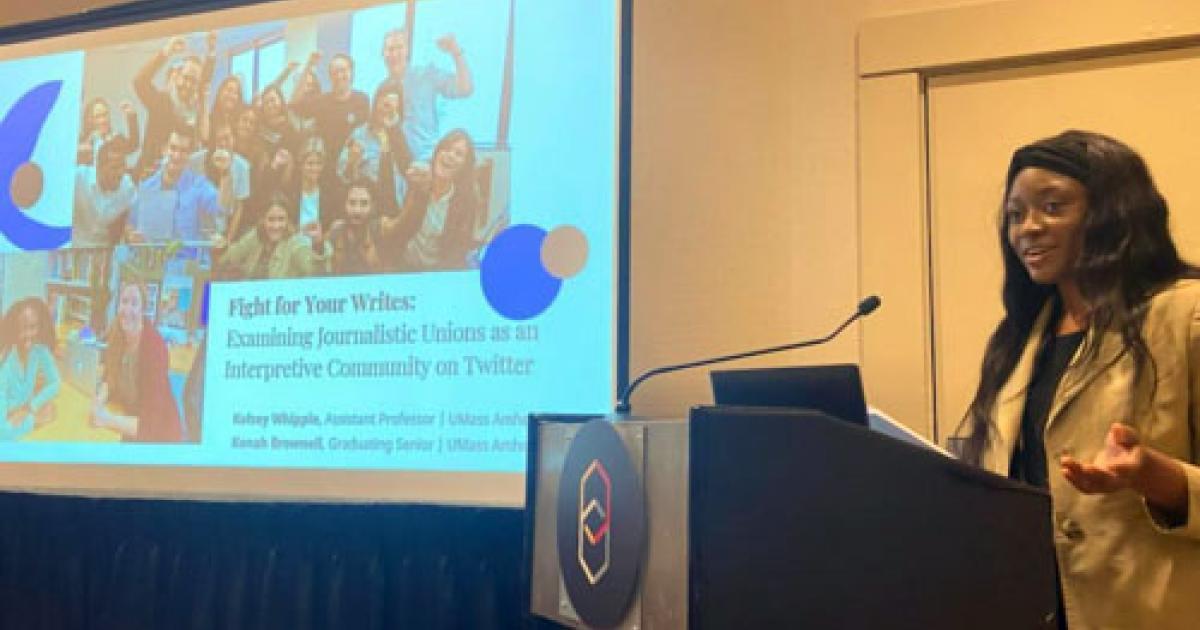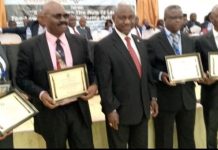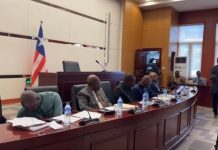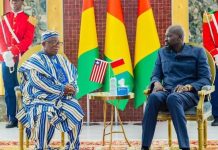Africa-Press – Liberia. A US-based Liberian student, Konah Lahaitu Brownell, recently attended the 73rd International Communication Association (ICA) Conference in Toronto, Canada.
The conference, which took place on Friday, May 26, one day before Brownell’s undergraduate graduation from the University of Massachusetts Amherst, marked a significant achievement in her academic journey.
The ICA Conference is widely regarded as one of the foremost global platforms for communication scholars, and being among the few undergraduate students chosen to present a research paper was an extraordinary honor for Brownell.
As a graduating senior majoring in Political Science and Journalism with a minor in Information Technology, Brownell collaborated with her professor, Dr. Kelsey Whipple, to co-author a research paper titled “Fight for Your Writes: Examining Journalistic Unions as an Interpretive Community on Twitter.”
The paper was accepted for presentation at the conference’s panel series titled “Studying Journalists’ Welfare and Well-Being.” The theme of this year’s ICA conference, “Reclaiming Authenticity in Communication,” invited scholars to explore how authenticity has evolved as a variable in public discourses and popular culture worldwide, along with its social, political, and cultural implications.
Konah Brownell, the daughter of Liberia’s renowned environmental and human rights lawyer and Goldman Prize winner Alfred Lahai Gbabai Brownell Sr., has always been driven by a passion for social justice and amplifying the voices of underrepresented communities.
Through her engagement in community activities and journalism, including writing for the social justice desk of her college newspaper and a women’s magazine on campus, she has shed light on the experiences of marginalized groups and addressed educational barriers faced by children and immigrant students.
While her broader interests lie in social justice, Brownell’s research focused specifically on journalistic unions and their crucial role in safeguarding the intellectual labor of journalists.
Her investigation revealed the exploitative nature of the journalism industry, particularly concerning young journalists and those from marginalized communities, who often endure inadequate salaries and working conditions due to their unwavering commitment to journalistic principles.
“As a journalism student, I was thrilled by the recent surge of journalistic unions and their collective action in holding news organizations accountable for exploitative labor practices. Through unionization, journalists across the nation have sent a clear message to their organizations and leadership that they are not exempt from scrutiny,” said Brownell.
Her research aimed to understand the objectives, priorities, and impact of these news unions within the journalism sector. By conducting qualitative textual analysis of social media messages from various unions and interviewing unionized journalists, Brownell and Dr. Whipple sought to uncover the reasons behind the recent wave of newsroom unionization, the strategies employed, and the resulting collective changes.
“As a research team, we wanted to understand the nuances of why so many newsrooms were unionizing at the same time on the local and national levels, what their goals were, the strategies they implemented to achieve those goals, the barriers they encountered, and the collective changes, if any, that have occurred as a result of these unions,” explained Brownell.
The research findings shed light on the prominent issues championed by journalistic unions, including fair pay, job security, diversity and inclusion, and mental and physical health. The analysis also explored how unions utilize rhetorical techniques, evidence, imagery, and statistics in their advocacy efforts to push for improved labor conditions in newsrooms.
“In our qualitative textual analysis, we studied the prominent journalistic labor issues and elements of the journalistic paradigm that appear in the journalistic unions’ Twitter discourse. We determined that journalistic unions consistently emphasized fair pay, job security, outside expenditures, diversity and inclusion, and mental and physical health as key areas of advocacy and activism,” stated Brownell. “These unions actively bargained for improvements in these aspects of journalistic labor during contract negotiations in newsrooms.”
The quantitative content analysis conducted by Brownell and her team highlighted the prevalence of advocacy, activism, and solidarity in the Twitter discourse of journalistic unions. “It was intriguing to observe how unions employed evidence, imagery, statistics, and other rhetorical techniques to effectively convey their messages and advocate for better working conditions,” Brownell explained.
Looking ahead, Brownell and her team plan to conduct interviews with journalists connected to news unions to gain insights into their perceptions of the current and potential impacts of these unions on their jobs, quality of life, profession, and audiences, among other factors. These interviews will provide further depth and understanding to complement the quantitative and qualitative analyses already undertaken.
Reflecting on their collaboration, Dr. Kelsey Whipple, Assistant Professor of Journalism, praised Brownell’s contribution to the study of news media unions. “Working with Konah on our study of news media unions made me think about the project and our research goals in a new light. Her insightful suggestions helped improve the scope and argument of our research, and it was wonderful to see how much she grew as a collaborator and researcher during our time together,” said Dr. Whipple.
For More News And Analysis About Liberia Follow Africa-Press






